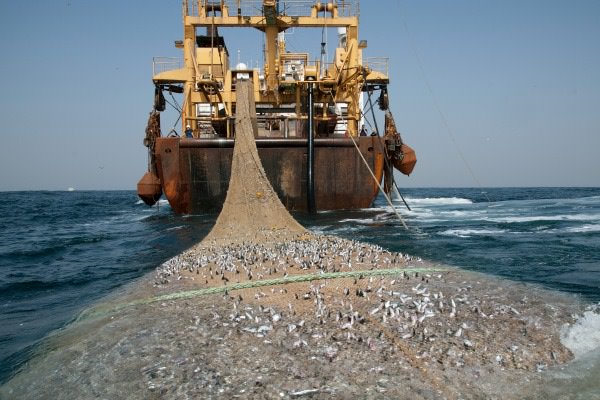Trawler Watch
Trawler Watch The sardines are prepping for their annual suicide run up the east coast of Southern Africa right now. And so will be illegal fishers. Preparing to gorge them with their huge purse seine nets and get them into a supermarket near you. That the overall population is dwindling as rapidly as every other … Read more


